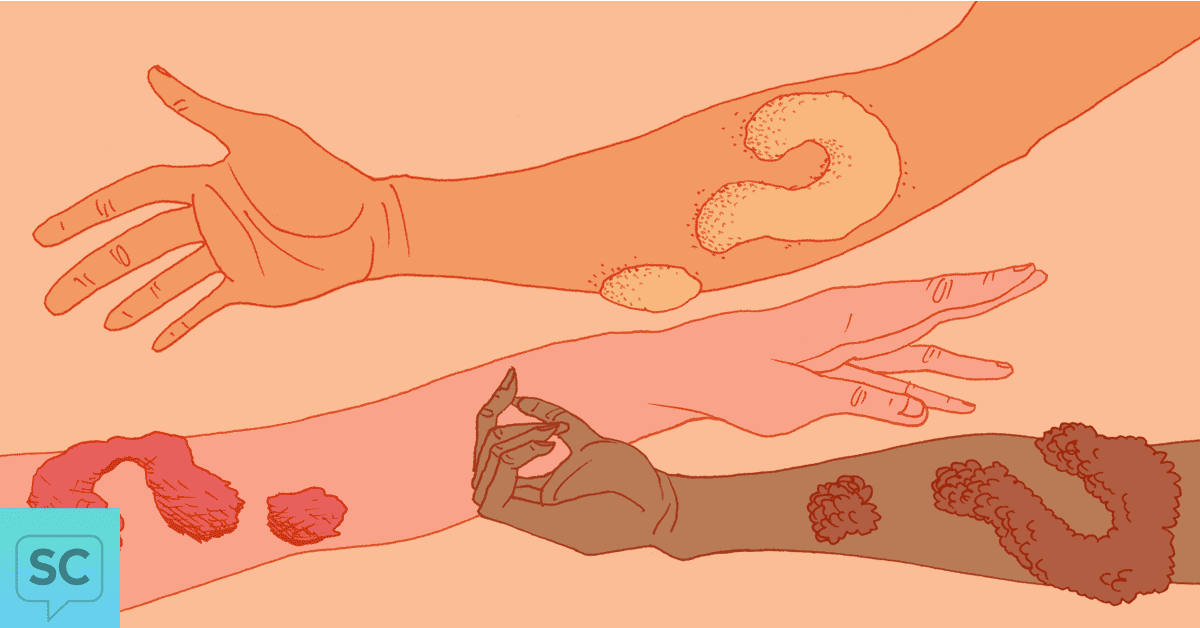Allergy Questions Following Skin Cancer Surgery
Skin cancer surgery is stressful enough in its own right. Complications during the healing process can make it downright frightening. The more fellow skin cancer patients I talk to, the more I realize that reactions to bandages and sutures can be quite common. It seems there are many of us who find ourselves with rashes, painful swelling, and itching at the excision site. I am certainly not alone in the bandage battle--neither are you.
A first time for everything
For a pale and freckled green-eyed gal who just missed being a redhead, I have been pretty fortunate as far as allergies are concerned. My skin can be fairly sensitive, but I grew up being able to answer “N/A'' in the allergy portion of medical history forms. However, something changed for me in 2007. I had my first allergic reaction as a result of an excision to remove melanoma from my upper arm. What followed was a two-week process with my dermatologist to determine the cause. To this day, I am still not sure we have it completely figured out.
I didn't know what the healing process would be like
This was my first surgery ever. I was honestly clueless as to what healing should look like and had no conception of what my body should be doing as it worked toward a new normal. Not long after I began changing the dressing on my excision, I started noticing increased redness in the area around my stitches.
I wasn't initially concerned
I chalked it up to general trauma to the area and decided to wait it out. As the days passed, the redness gave way to an itchy rash that featured a nice little patch of raised bumps. A few more days into the healing process and I noticed some swelling and increased tenderness. The entire area was becoming inflamed and quite uncomfortable.
All signs point to an allergy
For all I knew, this was par for the course, but when things began to feel more like an infection than healing, I saw my doctor. My initial thoughts revolved around the bandages I was using to cover my stitches, and she agreed. She was concerned I might have an allergy to latex products and suggested a change to latex-free bandages.
Repeat performances
Fast forward a few years, and my dermatologist biopsies a flake of dry skin on my neck. Fast forward two more weeks, and I am at home with a bandage across the center of my neck between my collarbones where a tiny basal cell carcinoma once took up residence. Again, I began to experience the familiar redness, itching, and inflammation. This time, the doctor I saw for my follow-up appointment deduced that I was allergic to Neosporin and encouraged me to start listing both latex and Neosporin as allergies when asked.
Avoiding what I'm allergic to
I have had three more skin cancer surgeries since then and have each time used latex-free products and steered clear of Neosporin and other petroleum products just to be safe. The funny thing is, I can and have used Neosporin on much smaller and less invasive wounds without issue. I have even been left with no choice but to throw on a bandage with latex in it from time to time and had no reaction whatsoever. I have this gut feeling that there is something about those more traumatic wounds that my system just can’t handle.
Searching for an answer
It is worth noting that the Asthma and Allergy Foundation of America has found that individuals with latex allergies tend to have highly reactive immune systems. And that, my friends, is curious to me.
I'm thinking latex is it
I will never claim to make sense of everything, but a little voice inside me wants me to believe that my body is attacking that latex like it’s a mortal enemy. If my immune system is triggered following an excision, it makes perfect sense that it would want anything new and different to make a hasty exit. Our bodies are amazing things, aren’t they?
Have you experienced the onset of an allergy following skin cancer surgery? What were your symptoms? Share with us in the comments.

Join the conversation